- Home
- Peggy Webb
Christmas in Time
Christmas in Time Read online
Christmas in Time
Peggy Webb
Smashwords Edition
Copyright Peggy Webb, 2011
Cover art design Kim Van Meter, 2011
All rights reserved
Acknowledgments
I am greatly indebted to two dear friends and fellow writers, Donna Fletcher, who encouraged me to bring my romance backlist to readers in e-format, and Debra Webb who suggested – and named - this brand new prequel to Only Yesterday. These two terrific friends have been in my life a long time, and they are hereby ordered to stick around till after I’m gone. I don’t know what I’d do without them.
When I started writing this paranormal romance, I knew I would take my heroine back in time to the Titanic. Music is in my bones (I play piano, sing in the church choir and compose a few blues lyrics), so I also knew the hero would be the band leader who went down with the ship. The real band leader was thirty-three-year-old Wallace Hartley, the courageous violinist who assembled the two bands on board to calm the other passengers with music as the great ship sank. He is memorialized with a plaque at Liverpool’s Philharmonic Hall, but I have kept his spirit alive in the fictional character of William Wesley.
I’ve also brought back “the Unsinkable Molly Brown” as none other than herself. My Molly Brown acts in a way that is purely fictional, but I have kept her courageous and crusading spirit.
To those of you who have been my loyal fans since the beginning and to readers who are new to my work, Christmas in Time is my gift to you.
I loved writing this novella. The ending makes me cry every time. Arm yourself with tissues.
o0o
Dedication
With love to my daughter-in-law, Anita Champion Webb. She is my biggest fan and I am hers.
CHAPTER ONE
Christmas, 1982
Gilly nearly knocked the Christmas tree down trying to put the star on top. When it listed dangerously to port, she wasn’t a bit surprised. What did amaze her was that she was able to snag a mid-sized limb and haul the tree upright again.
“That’ll teach you to fool with a smart old lady.” There she was, talking to a tree. Lately, she did a lot of talking to herself. She didn’t know whether to blame age or living alone.
It wasn’t the same in Windchime House since her brother Richard Debeau and his wife, Charlotte Ann, had died. It was too quiet, too lacking in the sort of whirlwind pace that goes with a house filled with people.
Gilly made a mental note to herself that she needed to buy a wreath of poinsettias and then see if Margaret would drive her to the Fairhope Cemetery to put it on their double gravestone.
When her phone rang, she scrambled down from the ladder, grateful she hadn’t broken her old fool neck in the descent then trotted into the hall to answer.
“Aunt Gilly?” It was Richard‘s granddaughter Ann, so like her grandmother at that age she caused people who’d known Charlotte Ann to do a double-take when she visited Fairhope.
Which wasn’t very often. Of course, Gilly wasn’t placing blame. Ann was a wonderful, caring great-niece. But she had her own life up in New York. She was a famous potter, always involved in some grand art show opening or racing off to the Metropolitan Opera with that high flaunting fiancé of hers. Gilly never could remember his name. She wasn’t about to blame that little brain fart on age. She didn’t like the man, plain and simple, so she didn’t bother to clutter up her brain with his name.
Besides all that, her niece had never once mentioned that What’s His Name made her toes curl under.
“When you find somebody to love, your toes will curl under,” Gilly had told her.
“How on earth do you know?” Ann had asked. Of course, she’d been too polite to point out that Gilly had never been married, and as far as the family knew, never even been in love.
Little did they know.
“It’s the Debeau curse,” is all Gilly had told her. Some things were best kept private.
The only person she’d ever told was Margaret Finley. They’d known each other since first grade. They’d become instant friends, sitting beside each other at school, then spending summers where their mamas took them to the same spot on the Alabama Gulf Coast beach where they would sit under the shade of striped umbrellas while Gilly and Margaret filled their little tin buckets and each other’s hair with sand.
Of course, the sand bucket incidents were long behind them, but not the friendship. It was the most enduring thing in Gilly’s life except her niece, who was now on the phone, sounding worried.
“Aunt Gilly, are you there?”
“I was just wool gathering.”
Ann’s laughter came clearly to her over the telephone lines. All of a sudden, Gilly was struck with such longing to be Ann’s age just once more before she died that her legs buckled. She found herself sliding down the wall, plopped unceremoniously onto the floor with her knees jacked up. She must look a sight. She hoped nobody came in and found her like this.
“I called to wish you Merry Christmas, Aunt Gilly.”
“The same to you, sweetie.”
For the life of her, Gilly couldn’t remember whether Ann had said she’d be coming to Windchime House for Christmas or staying in New York. And she wasn’t about to ask. Her niece might think she was going senile.
“Did your present arrive yet?”
Had it? Gilly had a vague memory of hearing the postman delivering the mail that morning. She also recalled that she’d planned to go onto the porch and get the mail after she finished her morning coffee. But she guessed she forgot.
“Not yet, dear.” Gilly felt a slight twinge of remorse, but consoled herself that she’d told only a little white lie. “But don’t you worry. I’m sure it won’t get lost in the post.”
“If it’s not there by tomorrow, let me know, Aunt Gilly. I’ve gotta go now. I love you.” Ann made kissing noises into the phone, and Gilly made them right back.
But her heart wasn’t in it. She was too worried about getting off the floor. She tried several times, to no avail. The silver lining to her situation was that she was right by the phone and could call somebody to come over.
“Silly old fart,” she said, a bit alarmed that talking to herself had become a habit.
There was a loud knocking at the front door, followed by a cheerful “Yoohoo!”
Margaret Finley. Gilly could have cried with relief.
“Come on in,” she called. “The door’s unlocked.”
The chimes over the front door sang out, and Margaret bustled in, her hands laden with newspapers and packages. The years had been kind to her. She didn’t look a day over sixty. Nor act it, either.
“Gilly, I’ve got your mail.” Margaret always spoke in a voice loud enough to wake the dead.
When she saw Gilly on the floor, Margaret looked like one of those cartoon characters digging her heels into the hardwood floor, screeching to a halt.
“What happened to you?”
“Nothing. I’m resting.” Gilly held out her hand. “Help me up.”
Both of them were older than God, and it took Margaret more than one attempt. For a while, it looked like Margaret would end up on the floor, too.
Finally, they were both upright, their gray hair askew and their faces flushed. They gave each other sheepish looks then burst into laughter. When they finally caught their breaths, Gilly said, “I’ve got eggnog in the kitchen.’
“Just what the doctor ordered.”
Margaret trailed behind Gilly, dumped the mail and packages onto the table, and pulled up a chair while Gilly rummaged in the cabinets for her Christmas cups. She was sure she’d brought them down from the china cabinet in the dining room, but they were nowhere to be seen.
Gilly decided to make d
o with her everyday china. Her hand shook only a little as she poured the eggnog. With her back turned to her old friend, she dumped one of her pain pills into her cup.
“Margaret, look and see if one of those packages is from New York.”
“It is. From Ann, looks like.”
“Good.” Gilly decided she’d call Ann first thing in the morning. Ann would think the package had arrived in the morning’s post, and Gilly wouldn’t have to say a thing about how she’d been forgetting to do the most simple things.
For instance, this morning she was trying to remember the name of that wretched man who had left Margaret stranded at the altar in 1925. Christmas, it was. And still so hot on the Gulf Coat you couldn’t stand to wear a coat. Why was it Gilly could remember every little detail except the cad’s name?
Probably, the same reason she could never recall Ann’s fiancé; neither of them deserved the fine women who loved them.
She set cups of eggnog on the table then slid into a chair, grateful for one more leisurely visit with Margaret. For all she knew, it could be her last. At their ages, one of them could go anytime. Who was to say Gilly would go first? Just because her doctor said the cancer was too widespread to treat and she wouldn’t live past the spring didn’t make it so.
Sometimes she wondered if she ought to tell Margaret about the cancer, but what good would it do? Margaret would worry herself to death then try to convince Gilly to see doctors at Mayo Clinic or go out to that big cancer clinic in Houston, Texas. And for what? Just a bunch more tests to confirm what she already knew.
Gilly wasn’t about to let cancer rob her and her old friend of their last happy days together. She’d take her pain pills and cram every bit of living she could into the time she had left, and then when it was time to go, she’d slip away with dignity and a sense of peace.
“Gilly, if you’re not wearing that black dress with the sequined jacket to the ballet next week, can I borrow it?”
“Pshaw. You can have it.”
“I wouldn’t think of it.”
“I’d like to know why not?”
“Because you’ll need it.”
“I’ve worn that dress so many times the dancers in the Nutcracker Suite Ballet can recognize me coming a mile.”
“Then let’s drive over to New Orleans Saturday and find something new for you.”
“Great. You drive.”
“Is the world coming to an end?”
“Not that I’ve heard.” Gilly had to be more careful with what she said, or Margaret would guess something was wrong. She was nobody’s dummy.
“Well, what then? You always insist on driving, though I can’t for the life of me figure that out. The last time you ran two red lights.”
“They were changing to green.” Gilly spoke with asperity. She hated to be caught in the wrong about anything, including driving.
“Still, you got pulled over by a cop.”
Here was one memory that hadn’t slipped Gilly’s mind. Probably because it was so embarrassing. She’s had to show her driver’s license, of course, and the cop, who didn’t look a bit older than the twelve-year-old shoes on her feet, had suggested that women over eighty shouldn’t be behind the wheel.
Who do you think is going to take me where I want to go? Houdini?
That’s what she’d told him. Thank goodness, he had a sense of humor. Otherwise she’d have ended up with a ticket for running a red light.
“Are you going to drive, Margaret, or just sit there and argue?”
“Well, of course. I’ll drive.”
“Good. I’ll make reservations at that little hotel in the French Quarter close to the market.”
Gilly figured if she took plenty of pain pills, she could get through the trip without Margaret suspecting a thing. Besides, she liked the idea of one more car trip along the Gulf coast, one more chance to enjoy the ocean view, one more chance to trek through the fine old shops and admire the architecture of New Orleans.
They sipped their eggnog in companionable silence a while, then Margaret reached for the package from New York.
“Aren’t you going to open it, Gilly? I’m dying to know what’s inside.”
Gilly untied the red bow and ripped open the gold paper. Ordinarily she’d have opened the package carefully, saving the bow and folding the paper to use again next Christmas.
Margaret, who knew her so well, didn’t comment. Thank goodness.
When Gilly picked up the box to open the lid, there was a small musical sound, like angel wings brushing across a harp. Something inside her yearned, but she couldn’t have told you what she yearned for, nor why.
She lifted the lid of the box, and there lay the wind chimes, silver with a clapper shaped like a star. Gilly heard the distant sound of music, though the chimes lay perfectly still in their nesting of tissue paper.
“They’re beautiful, Gilly. Take them out and let me see.”
She lifted the chimes, and their music rang through the kitchen with such an insistence her heart hurt. She wondered if she needed to take another pain pill.
“Oh, my.” Margaret touched the clapper, sending the chimes pealing once more. “I’ve never seen anything like them.”
“They are beautiful, aren’t they?” Gilly turned the chimes so the clapper spun. In the glow of the overhead light, it shot sparks around the kitchen. She felt a bit light headed.
“They’ll go well with the rest of the chimes on the porch,” Margaret said.
The chimes on the porch had been collected from all over the world, both by Charlotte Ann Harris Debeau, who designed Windchime house, and by Gilly, herself. Unless her niece, Ann Debeau, kept Windchime House, this Christmas gift would be the last chimes hung on the porch railing.
It pleased Gilly that they were the most magical of all.
CHAPTER TWO
After Margaret left, Gilly carried her Christmas gift into her bedroom and hung the chimes on the bedpost. Tomorrow she’d call her handyman, Elvin Whitmore, to come over and hang them on the porch.
It galled her that she had to ask somebody else to do the things she’d once done without thinking twice.
Though it was only nine o’clock, Gilly put on her white nightgown and went to bed. The day had tuckered her out. Not that she’d done anything.
Maybe it was true what the doctor said. If that was the case, so be it. She wasn’t about to lie under her quilts fretting and counting the days.
She settled herself onto her back, the way she liked to sleep, pulled the covers up to her chin and closed her eyes. She was just drifting off when she heard the chimes.
Strange. Her window was closed, and even if it had been open, there wasn’t a breeze stirring outside. Though she sometimes turned on her ceiling fan in winter just to circulate the air, it hugged the ceiling, silent as a teardrop.
The chimes continued to ring, their music building in volume until Gilly felt as if she were sitting in the middle of a violin quintet. Haunting and familiar, the music seeped through her skin and into her bones. She felt herself spinning along with the star clapper. It shot sparks so that the walls of her bedroom shimmered as if they were lit by a thousand stars. Lightheaded and breathless, Gilly felt herself lifting off the bed, floating through space and time. She was vaguely aware of Windhime House vanishing beneath her, the glimmer of the sea receding until its waters were no bigger than the blue sapphire around her neck.
The scent from the rose garden at Windchime House followed Gilly through a tunnel of clouds and stars and into the Café Parisien. Sunlight glinted on the deep blue waters of the Atlantic and the star sapphire around her neck.
Gilly inhaled the scent of fresh pink roses on her table, closed her hand around her tea cup and tried to get used to the tilting sensation as the luxury liner plowed through the ocean. It was only a second crossing for Gilly and the maiden voyage of the RMS Titanic.
The voyage was an eighteenth birthday present from her father, and far too extravagant a gift, according to
her mother. Besides, Eleanor had said, Gilly is too young to travel alone.
Jack Debeau had placated his wife by telling her that he had no intention of letting his beautiful daughter loose on the high seas. He had business in Southhampton, and it was the opportunity of a lifetime for him and his only daughter to return home on the maiden voyage on such a splendid liner.
As a matter of fact, he’d said, I’ll take the whole family.
Eleanor, who hated water to the point that she never went alone to the beach, which was practically in their backyard, quickly refused the invitation.
And so, Eleanor had stayed behind with Gilly’s younger brother, Richard, while Jack and his adventure-loving daughter trekked all over England, then set sail for America on the Titanic.
Now, across the table, Jack Debeau stood up and placed his linen napkin on the table. “I’m going to my stateroom for a nap before dinner.”
Out of the corner of her eye, Gilly saw the band beginning to assemble. This was the trip of a lifetime, and she was determined not to miss a thing.
“Go ahead, Papa. I’m going to order another tea cake and listen to the band.”
“Fine, Gilly. But don’t tire yourself out trying to take in everything the first day. You’ll have plenty of time on the crossing.”
It was impossible to believe the organized, disciplined man standing beside her had ever been eighteen.
“You worry too much, Papa.” She stood on tiptoe and kissed his cheek. “Have a good rest.”
Ordinarily, Gilly would have watched her father out of sight. She loved the way he carried himself, tall and proud, his shoulders squared, his gait determined, as if he knew exactly where he was going and how to get there.
Gilly was more like her mother, a bit starry-eyed and given to flights of fancy, a will o’ the wisp who might blow in the direction of any wind. Currently, the wind was whipping her in the direction of the tall, dark-haired violinist who took his place at the front of the quintet.
She leaned forward for a better view. He said something to the other band members, then turned toward the tea room and tucked his violin under his chin. There was tenderness in the move, as if he had a life-long affair with the instrument and couldn’t wait to get his hands on the strings. When he lifted his bow, he looked across the café straight at Gilly.

 Magnolia Wild Vanishes (A Charmed Cat Mystery, Book 1)
Magnolia Wild Vanishes (A Charmed Cat Mystery, Book 1) Just One Look
Just One Look SAVAGE BEAUTY
SAVAGE BEAUTY Elvis and the Devil in Disguise (A Southern Cousins Mystery With Bonus Charmed Cat Mystery)
Elvis and the Devil in Disguise (A Southern Cousins Mystery With Bonus Charmed Cat Mystery) Elvis and the Blue Suede Bones
Elvis and the Blue Suede Bones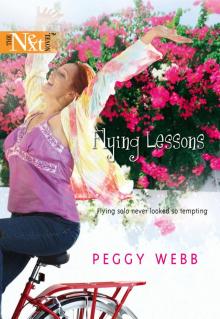 Flying Lessons
Flying Lessons The Smile of an Angel
The Smile of an Angel Any Thursday (Donovans of the Delta)
Any Thursday (Donovans of the Delta) Stars to Lead Me Home: Love and Marriage (A Novel)
Stars to Lead Me Home: Love and Marriage (A Novel) Bittersweet Passion
Bittersweet Passion Donovan’s Angel
Donovan’s Angel Valley of Fire (The Mississippi McGills)
Valley of Fire (The Mississippi McGills) Summer Hawk
Summer Hawk Force Of Nature
Force Of Nature Christmas in Time
Christmas in Time The Dixie Virgin Chronicles: Bea (Book 4)
The Dixie Virgin Chronicles: Bea (Book 4) The Dixie Virgin Chronicles: Molly (Book 3)
The Dixie Virgin Chronicles: Molly (Book 3) Gray Wolf's Woman
Gray Wolf's Woman Dark Fire
Dark Fire Duplicity
Duplicity The Accidental Princess
The Accidental Princess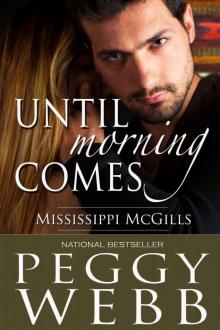 Until Morning Comes (The Mississippi McGills)
Until Morning Comes (The Mississippi McGills) Hallie's Destiny (The Donovans of the Delta)
Hallie's Destiny (The Donovans of the Delta)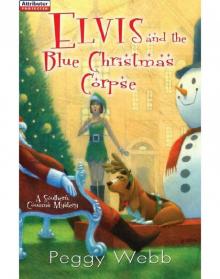 Elvis and the Blue Christmas Corpse
Elvis and the Blue Christmas Corpse Standing Bear's Surrender
Standing Bear's Surrender Warrior's Embrace
Warrior's Embrace Elvis and the Pink Cadillac Corpse (A Southern Cousins Mystery, Plus Bonus Recipes)
Elvis and the Pink Cadillac Corpse (A Southern Cousins Mystery, Plus Bonus Recipes) A Prince for Jenny
A Prince for Jenny The Dixie Virgin Chronicles: Janet (Book 2)
The Dixie Virgin Chronicles: Janet (Book 2) MM03 - Saturday Mornings
MM03 - Saturday Mornings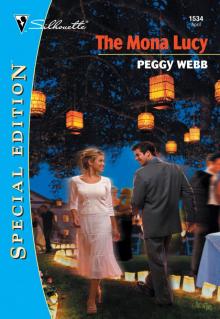 The Mona Lucy
The Mona Lucy The Christmas Feast
The Christmas Feast Higher Than Eagles (Donovans of the Delta)
Higher Than Eagles (Donovans of the Delta) Jack Loves Callie Tender
Jack Loves Callie Tender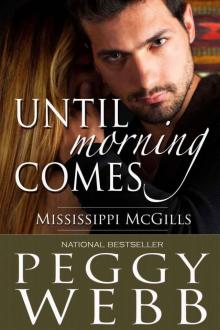 MM02 - Until Morning Comes
MM02 - Until Morning Comes MM01 - Valley of Fire
MM01 - Valley of Fire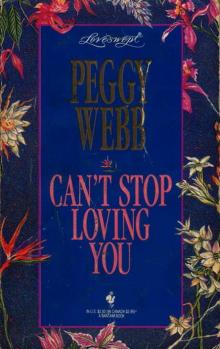 Can't Stop Loving You
Can't Stop Loving You Secret Goddess Code
Secret Goddess Code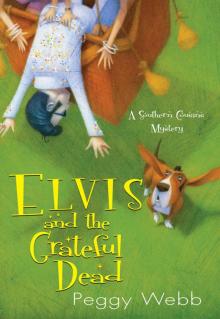 Elvis and the Grateful Dead
Elvis and the Grateful Dead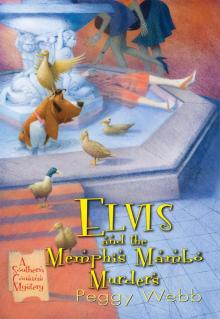 Elvis And The Memphis Mambo Murders
Elvis And The Memphis Mambo Murders Touched by Angels
Touched by Angels The Dixie Virgin Chronicles: Belinda (Book 1)
The Dixie Virgin Chronicles: Belinda (Book 1) Sleepless Nights (The Donovans of the Delta)
Sleepless Nights (The Donovans of the Delta) Saturday Mornings (The Mississippi McGills)
Saturday Mornings (The Mississippi McGills)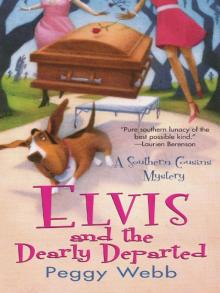 Elvis and The Dearly Departed
Elvis and The Dearly Departed Phantom of Riverside Park
Phantom of Riverside Park